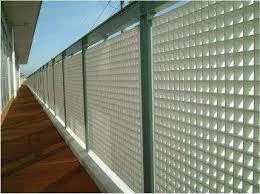
-
 Afrikaans
Afrikaans -
 Albanian
Albanian -
 Amharic
Amharic -
 Arabic
Arabic -
 Armenian
Armenian -
 Azerbaijani
Azerbaijani -
 Basque
Basque -
 Belarusian
Belarusian -
 Bengali
Bengali -
 Bosnian
Bosnian -
 Bulgarian
Bulgarian -
 Catalan
Catalan -
 Cebuano
Cebuano -
 China
China -
 China (Taiwan)
China (Taiwan) -
 Corsican
Corsican -
 Croatian
Croatian -
 Czech
Czech -
 Danish
Danish -
 Dutch
Dutch -
 English
English -
 Esperanto
Esperanto -
 Estonian
Estonian -
 Finnish
Finnish -
 French
French -
 Frisian
Frisian -
 Galician
Galician -
 Georgian
Georgian -
 German
German -
 Greek
Greek -
 Gujarati
Gujarati -
 Haitian Creole
Haitian Creole -
 hausa
hausa -
 hawaiian
hawaiian -
 Hebrew
Hebrew -
 Hindi
Hindi -
 Miao
Miao -
 Hungarian
Hungarian -
 Icelandic
Icelandic -
 igbo
igbo -
 Indonesian
Indonesian -
 irish
irish -
 Italian
Italian -
 Japanese
Japanese -
 Javanese
Javanese -
 Kannada
Kannada -
 kazakh
kazakh -
 Khmer
Khmer -
 Rwandese
Rwandese -
 Korean
Korean -
 Kurdish
Kurdish -
 Kyrgyz
Kyrgyz -
 Lao
Lao -
 Latin
Latin -
 Latvian
Latvian -
 Lithuanian
Lithuanian -
 Luxembourgish
Luxembourgish -
 Macedonian
Macedonian -
 Malgashi
Malgashi -
 Malay
Malay -
 Malayalam
Malayalam -
 Maltese
Maltese -
 Maori
Maori -
 Marathi
Marathi -
 Mongolian
Mongolian -
 Myanmar
Myanmar -
 Nepali
Nepali -
 Norwegian
Norwegian -
 Norwegian
Norwegian -
 Occitan
Occitan -
 Pashto
Pashto -
 Persian
Persian -
 Polish
Polish -
 Portuguese
Portuguese -
 Punjabi
Punjabi -
 Romanian
Romanian -
 Russian
Russian -
 Samoan
Samoan -
 Scottish Gaelic
Scottish Gaelic -
 Serbian
Serbian -
 Sesotho
Sesotho -
 Shona
Shona -
 Sindhi
Sindhi -
 Sinhala
Sinhala -
 Slovak
Slovak -
 Slovenian
Slovenian -
 Somali
Somali -
 Spanish
Spanish -
 Sundanese
Sundanese -
 Swahili
Swahili -
 Swedish
Swedish -
 Tagalog
Tagalog -
 Tajik
Tajik -
 Tamil
Tamil -
 Tatar
Tatar -
 Telugu
Telugu -
 Thai
Thai -
 Turkish
Turkish -
 Turkmen
Turkmen -
 Ukrainian
Ukrainian -
 Urdu
Urdu -
 Uighur
Uighur -
 Uzbek
Uzbek -
 Vietnamese
Vietnamese -
 Welsh
Welsh -
 Bantu
Bantu -
 Yiddish
Yiddish -
 Yoruba
Yoruba -
 Zulu
Zulu
frp hood
The Importance of FRP Hoods in Modern Applications
Fiber Reinforced Polymer (FRP) hoods have become increasingly popular in various industries due to their unique properties and advantages over traditional materials. As engineering and manufacturing technology evolves, the demand for lightweight, durable, and corrosion-resistant materials has risen sharply. FRP hoods serve as an excellent example of how innovative materials can enhance product performance and efficiency in numerous applications, including automotive, aerospace, and industrial sectors.
What is FRP?
FRP, or Fiber Reinforced Polymer, is a composite material made from a polymer matrix reinforced with fibers, typically glass or carbon fibers. This combination results in a lightweight yet strong and durable material that boasts superior resistance to environmental factors such as moisture, chemicals, and ultraviolet (UV) radiation. The versatility of FRP makes it suitable for a wide range of applications, from construction and infrastructure to consumer goods.
The Advantages of FRP Hoods
1. Lightweight Properties One of the most significant advantages of FRP hoods is their lightweight nature. Traditional materials such as metal or fiberglass can be heavy, impacting the overall weight of vehicles or equipment. By using FRP, manufacturers can significantly reduce the weight of hoods, thereby enhancing fuel efficiency in automotive applications and improving the performance of aerospace components.
2. Corrosion Resistance FRP hoods are inherently resistant to corrosion and chemical damage. This property makes them ideal for use in harsh environments, such as chemical processing plants or coastal areas where saltwater exposure is common. Unlike metal hoods, which can suffer from rust and degradation over time, FRP hoods maintain their structural integrity and appearance, even after years of use.
3. Customizable Design The manufacturing process for FRP allows for a high degree of customization. Engineers can design hoods in various shapes, sizes, and colors to meet specific application requirements. This flexibility enables manufacturers to create unique products that stand out in a competitive market. Additionally, FRP can be molded into complex shapes, which is often challenging with traditional materials.
frp hood

4. Thermal Insulation Properties FRP has excellent thermal insulation properties, making it suitable for applications where temperature control is crucial. For example, in automotive or aerospace sectors, maintaining optimal temperatures is essential for engine efficiency and safety. The insulating properties of FRP hoods help to minimize heat transfer, leading to improved performance and longevity.
5. Aesthetic Appeal Beyond functionality, FRP hoods can also be designed to enhance the aesthetic appeal of products. The material can be finished to achieve a smooth and attractive surface, allowing for sleek designs that appeal to consumers. In the automotive industry, a well-designed hood can significantly impact a vehicle’s overall appearance and marketability.
Applications of FRP Hoods
FRP hoods find applications across various industries. In the automotive sector, they are commonly used in cars, trucks, and motorcycles where lightweight and durability are critical. Aircraft manufacturers increasingly use FRP hoods for engine covers and structural components, taking advantage of the material's weight savings and resistance to environmental factors.
In industrial settings, FRP hoods are utilized in machinery and equipment that require protection from corrosive elements. Additionally, FRP hoods are gaining traction in the construction industry, where they are used for cladding and protective covers, combining functionality with an attractive design.
Conclusion
The integration of Fiber Reinforced Polymer (FRP) hoods into various industries demonstrates the importance of innovative materials in enhancing product performance. The lightweight, corrosion-resistant, and customizable nature of FRP provides significant advantages over traditional materials, making it a preferred choice for engineers and manufacturers. As technology continues to advance, the applications and benefits of FRP hoods are expected to grow, paving the way for more efficient, durable, and aesthetically pleasing solutions across multiple sectors.









